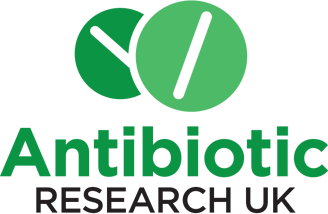We have been working for the past couple of years with Kevin Hollinrake MP for Thirsk and Malton on raising the issue of antibiotic resistance as often as possible with the Government and Ministers. Kevin has been extremely supportive of our work and as he is the MP for the constituency where ANTRUK was created and operates from we have lobbied him to help us. In 2016 at our instigation, Kevin asked both verbal and written questions in the House of Commons. One highlight was a question posed on 11 March to David Cameron, the then Prime Minister in which ANTRUK was mentioned. As a result of the question, Kevin held a private meeting with David Cameron in which he raised the question of Government funding for the charity. A meeting was held with the charity and Kevin with Jane Ellison MP, the then minister responsible at the Department of Health for Public Health England followed by a meeting with Dame Sally Davies, Chief Medical Officer and Sir Mark Walport, Chief Scientist. Unfortunately none of these meetings has yet yielded any immediate funding for ANTRUK’s mission of tackling antibiotic resistance. Two Westminster Hall debates have been held focussed on antibiotic resistance. The first of these was led by Julian Sturdy, MP for York Outer in April 2016 and the Government Minister responding was George Freeman MP. The second debate organised by Kevin Hollinrake took place in early March 2017 and was focussed around what the Government is doing to enact the recommendations of the O’Neill Review. The Minister responding on behalf of the Government was Nicola Blackwood MP who replaced Jane Ellison when Theresa May became Prime Minister. These set piece debates seem to be composed of pre-prepared speeches made by MP’s with little time for constructive debate. It is great that at the two Westminster Hall debates the charity got a great deal of coverage but whether this will be translated into practical assistance remains to be seen. Prior to the O’Neill Review recommendations Westminster Hall debate, a twitter conversation #antibioticsdebate took place.
In addition to these verbal question and debates a number of Written Parliamentary questions have been posed over the past 12 months;
Question:
To ask the Secretary of State for Health, by what process his Department plans to evaluate and continue to develop national antibiotic prescribing targets for primary and secondary care. (41033)
Tabled on: 20 June 2016
Answer:
Jane Ellison:
The Department takes advice on the measurement of prescribing levels and the development of objectives for levels of prescribing of antibiotics from the Department’s Health’s Advisory Committee on Antimicrobial Resistance and Healthcare Associated Infections as well as the English Surveillance Programme for Antimicrobial Utilisation and Resistance.
The English Surveillance Programme on Antimicrobial Use and Resistance, (ESPAUR), was established by Public Health England (PHE) in 2013 in response to the publication of the UK 5 year Strategy on Antimicrobial Resistance (AMR). ESPAUR provides the data on prescribing of antibiotics and levels of resistance to antibiotics in both primary and secondary care that allows the Department to evaluate progress.
PHE uses the ESPAUR data to provide ongoing expert advice to NHS England to enable ongoing development of commissioning incentives to encourage healthcare providers to achieve the antibiotic prescribing quality measures recommended by the national expert Advisory Group on AMR and Healthcare Associated Infections for primary and secondary care.
Question:
To ask the Secretary of State for Health, if his Department will take steps to record on death certificates antibiotic resistant infection as the patient’s cause of death. (58772)
Tabled on: 06 January 2017
Answer:
David Mowat:
There is currently provision for recording resistant infections on death certificates. For example, guidance on recording deaths from MRSA was issued in 2005 by the then Chief Medical Officer. However, it is often the case that by the time someone dies they may have a number of diseases and complications of illness or treatment. It is, therefore, a matter of clinical judgment to decide whether a condition present at or just before death was a primary or secondary cause of a patient’s death.
The World Health Organization is currently working on a revision (ICD 11) of its diagnostic coding system ICD 10. This is due in 2018 and will have a more comprehensive coverage of types of antimicrobial resistance.
Question:
To ask the Secretary of State for Health, whether all blood assay results showing infection or resistance to antibiotics go onto a national register. (58773)
Tabled on: 06 January 2017
Answer:
Nicola Blackwood:
Hospital microbiology laboratories routinely record the results of testing bacteria isolated from blood for susceptibility or resistance to antibiotics. Since 1989, Public Health England (and its predecessors, the Public Health Laboratory Service and the Health Protection Agency) have requested that laboratories submit their stored data on resistance in bacteria isolated from blood to a national database called Second Generation Surveillance System (SGSS). Currently, 98% of hospital laboratories submit their antimicrobial resistance data.
The answer was submitted on 16 Jan 2017 at 16:55.
Question:
To ask the Secretary of State for Health, if his Department will take steps to set up a National Antibiotic Register for recording all hospital and community patients who have an antibiotic resistant infection. (58778)
Tabled on: 06 January 2017
Answer:
Nicola Blackwood:
Such a system already exists. Hospital microbiology laboratories routinely record the results of testing bacteria isolated from infections for susceptibility or resistance to antibiotics. These data are voluntarily submitted to a national antimicrobial resistance (AMR) database called Second Generation Surveillance System (SGSS) maintained by Public Health England. Currently, 98% of hospital laboratories submit their AMR data to SGSS.
The answer was submitted on 16 Jan 2017 at 16:56.
Question:
To ask the Secretary of State for Health, what steps his Department is taking to regulate the online sale of (a) antibiotics and (b) other medicine. (65574)
Tabled on: 27 February 2017
Answer:
Nicola Blackwood:
In the United Kingdom, there are legal controls on the retail sale, supply and advertising of medicines which are set out in the Human Medicines Regulations 2012. These apply without distinction to medicines advertised, sold or supplied through the internet. This means that Prescription Only (POM) and Pharmacy medicines (P) can only be sold or supplied at registered pharmacy premises by, or under the supervision of, a pharmacist. Furthermore, POMs can only be sold or supplied in accordance with a prescription from a doctor, dentist or relevant healthcare professional. POMs cannot be advertised to the general public.The vast majority of antibiotics are only available as POM for supply only under the supervision of a suitably qualified healthcare professional.
Websites offering to supply POMs without a relevant prescription are in breach of UK legal requirements and the Medicines and Healthcare Products Regulatory Agency will investigate and take appropriate action including criminal investigation and prosecution.
The answer was submitted on 07 Mar 2017 at 10:37.
ANTRUK will continue to work with MPs and members of the House of Lords in the coming months to raise the profile of antibiotic resistance and to endeavour to see real new money put into this most urgent issue.

